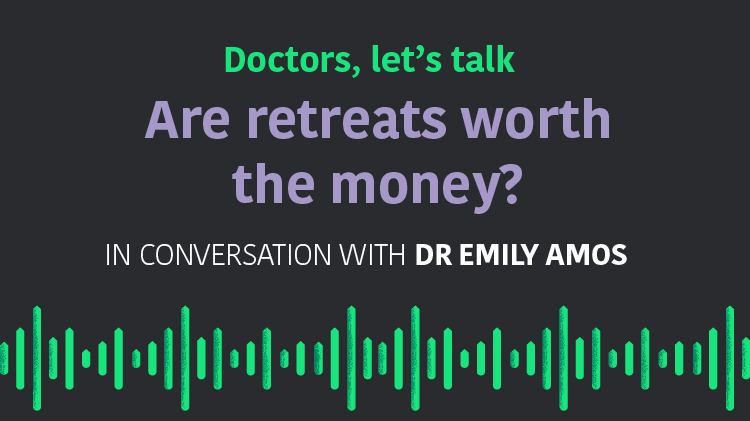Patient Gifts Navigating From Mince Pies to Porsches
07 Dec 2012

Case history
The surgeon saw the patient on one occasion and discussed the benefits and risks of an elective surgical procedure. A few weeks later the patient sent a gift of a dozen bottles of expensive wine to the surgeon’s rooms.
Discussion
Nearly every doctor will at some stage receive a gift from a patient, and at this time of the year, it is not uncommon for patients to give gifts to their doctors.
In Australia gift giving is usually motivated by gratitude or cultural customs. Many patients have no expectation of preferential treatment in response to their gift. However, a small number of patients may assume (or intend) that their gift entitles them to additional services such as appointments on demand, favourable insurance reports, flexibility in other practice rules etc. If you accept such a gift you may feel it is difficult to refuse such requests. Gifts can also be portentous of serious professional boundary transgressions.
Although largely benevolent, it may be difficult to identify the patient’s motivation. It is useful to ask: Is the giving and receiving of this gift in the best interests of the patient? If I accept the gift will I feel torn or compromised in managing the patient in the future?1
An MJA article states there is general human impulse to “reciprocate” for even small gifts, and that those receiving such gifts are often unable to remain objective as they reweigh information and choices in light of the gift.2
Token and trivial gifts of appreciation in proportion to the service you have provided are probably not of great concern unless offered frequently. Acceptance of non-trivial gifts may be regarded by patients and colleagues as unethical.
Good Medical Practice: A Code of Conduct for Doctors in Australia3 states:
8.12 Financial and commercial dealings
Doctors must be honest and transparent in financial arrangements with patients. Good medical practice involves:
…
8.12.2 Not encouraging patients to give, lend or bequeath money or gifts that will benefit you directly or indirectly.
Risk management strategies
We recommend you reflect upon the motivation of the gift giver and its timing.4
Consider the following issues which should raise concern:
- gifts timing e.g. a gift on Valentine’s Day versus Christmas time
- gift’s monetary value – a value of less than $75 constitutes “trivial and token”5
- gift’s personal specificity
- meaning to the patient as more than simple gratitude.
If you believe a gift is inappropriate, you should politely decline while avoiding offending or embarrassing the patient. Explaining the rejection in terms of a general policy and/or ethical obligation will hopefully enable a patient to understand that the rejection is not personal, such as: I am sorry, I appreciate your gesture, but our practice policy does not permit us to accept gifts of this value. 5 From time to time patients will not accept your refusal, and another option is to accept the gift but advise them that it will be donated to a charity.
Summary Points
- Acceptance of non-trivial gifts may be regarded by patients and colleagues as unethical.
- If you receive a gift from a patient, it is useful to ask: Is the giving and receiving of the gift in the best interests of the patient? If I accept the gift will I feel torn or compromised in managing the patient in the future?
- Good medical practice involves not encouraging patients to give, lend or bequeath money or gifts that will benefit you directly or indirectly.
1 Gaufberg E. Should Physicians Accept Gifts from Patients? Am Fam Physician 2007; Aug 1;76(3):437-438. Available at: www.aafp.org/afp/2007/0801/p437.html
2 Mitchell P B. Winds of change: growing demands for transparency in the relationship between doctors and the pharmaceutical industry. MJA 2009; 191 (5): 273-275
3 Good Medical Practice: A Code of Conduct for Doctors in Australia. Available at: www.medicalboard.gov.au/Codes-Guidelines-Policies.aspx
4 Spence S A. Patients bearing gifts: are there strings attached? BMJ 2005; 331:1527–9
5 NSW Health Directive: Conflicts of Interest and Gifts and Benefits. Available at: www.health.nsw.gov.au/policies/pd/2010/pdf/PD2010_010.pdf

Doctors, Let's Talk: Setting Boundaries At Work
A conversation with Nicola Campbell, Psychiatry Registrar, that explores the necessity of setting professional boundaries as a Junior Doctor.
07 Dec 2022

Doctors, Let's Talk: Your Support Network Is Your Net-Worth
A conversation with Nidhi Krishnan, Paediatric Registrar, that explores the value of building a strong network as a Junior Doctor.
07 Dec 2022

Doctors, Let's Talk: Are Retreats Worth The Money?
A conversation with Dr Emily Amos, General Practitioner, International Board Certified Lactation Consultant, and registered mindfulness teacher, that explores the utility of mindful retreats and self-care among Junior Doctors.
07 Dec 2022

Doctors, Let's Talk: Is Quitting Medicine Ever The Answer?
A conversation with Dr Ashe Coxon, General Practitioner, career counsellor, and founder of Medical Career Planning, that explores the issue of dealing with career uncertainty as a Junior Doctor.
07 Dec 2022

